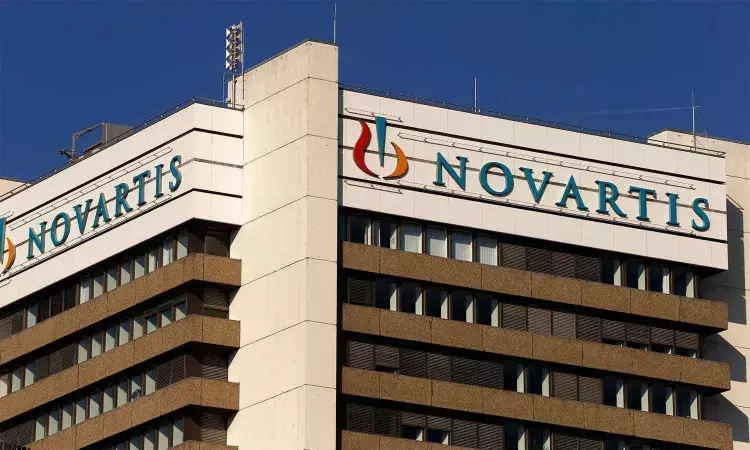- Home
- Medical news & Guidelines
- Anesthesiology
- Cardiology and CTVS
- Critical Care
- Dentistry
- Dermatology
- Diabetes and Endocrinology
- ENT
- Gastroenterology
- Medicine
- Nephrology
- Neurology
- Obstretics-Gynaecology
- Oncology
- Ophthalmology
- Orthopaedics
- Pediatrics-Neonatology
- Psychiatry
- Pulmonology
- Radiology
- Surgery
- Urology
- Laboratory Medicine
- Diet
- Nursing
- Paramedical
- Physiotherapy
- Health news
- Fact Check
- Bone Health Fact Check
- Brain Health Fact Check
- Cancer Related Fact Check
- Child Care Fact Check
- Dental and oral health fact check
- Diabetes and metabolic health fact check
- Diet and Nutrition Fact Check
- Eye and ENT Care Fact Check
- Fitness fact check
- Gut health fact check
- Heart health fact check
- Kidney health fact check
- Medical education fact check
- Men's health fact check
- Respiratory fact check
- Skin and hair care fact check
- Vaccine and Immunization fact check
- Women's health fact check
- AYUSH
- State News
- Andaman and Nicobar Islands
- Andhra Pradesh
- Arunachal Pradesh
- Assam
- Bihar
- Chandigarh
- Chattisgarh
- Dadra and Nagar Haveli
- Daman and Diu
- Delhi
- Goa
- Gujarat
- Haryana
- Himachal Pradesh
- Jammu & Kashmir
- Jharkhand
- Karnataka
- Kerala
- Ladakh
- Lakshadweep
- Madhya Pradesh
- Maharashtra
- Manipur
- Meghalaya
- Mizoram
- Nagaland
- Odisha
- Puducherry
- Punjab
- Rajasthan
- Sikkim
- Tamil Nadu
- Telangana
- Tripura
- Uttar Pradesh
- Uttrakhand
- West Bengal
- Medical Education
- Industry
Novartis Kisqali adds one more year of survival benefit for broadest set of patients, including those with aggressive HR+/HER2- advanced breast cancer

Basel: Pharma major, Novartis, has announced results from a new pooled exploratory analysis across the entire MONALEESA Phase III program, confirming nearly one year of additional overall survival (OS) benefit in a subgroup of patients with aggressive forms of hormone receptor-positive, human epidermal growth factor receptor-2 negative (HR+/HER2-) advanced breast cancer (aBC).
This subgroup analysis found that patients with visceral metastases—including liver metastases and multiple metastatic sites, which are typically associated with a poor prognosis—who were treated with Kisqali (ribociclib) plus endocrine therapy in the first-line setting, achieved a median OS of 62.7 months compared to 52.1 months for those treated with endocrine therapy alone (HR=0.79; 95% CI: 0.65-0.97). Data from this analysis will be presented at the European Society of Medical Oncology (ESMO) Congress in Paris, France.
"Patients who have visceral metastases typically have a worse prognosis and often demonstrate resistance to treatment, so as a clinician it is encouraging to see significant survival benefit with ribociclib in the first-line setting in patients with more aggressive disease," said Denise A. Yardley, MD, Senior Investigator, Breast Cancer Research Program, Sarah Cannon Research Institute at Tennessee Oncology, USA. "Ribociclib is the only CDK4/6 inhibitor to show a consistent overall survival benefit in combination with endocrine therapy, while also maintaining quality of life across the Phase III program."
"The goal for advanced breast cancer treatment is to help people live longer, and we are proud that Kisqali continues to deliver a significant survival benefit while also maintaining quality of life, even for those with harder-to-treat disease," said Jeff Legos, Executive Vice President, Global Head of Oncology and Hematology at Novartis. "We are committed to demonstrating what makes Kisqali a unique CDK4/6 inhibitor, thus providing patients and oncologists confidence in this therapeutic option."
Kisqali is the only CDK4/6 inhibitor with proven overall survival benefit across all its three pivotal Phase III advanced breast cancer trials, and is recognized by the National Comprehensive Cancer Network (NCCN) guidelines as the only CDK4/6 inhibitor with overall survival benefit in first-line HR+/HER2- advanced breast cancer. Additionally, Kisqali has the highest rating of any CDK4/6 inhibitor on the ESMO Magnitude of Clinical Benefit Scale, achieving a score of five out of five for first-line premenopausal patients with HR+/HER2- advanced breast cancer. Further, Kisqali in combination with either letrozole or fulvestrant has uniquely, among other CDK4/6i, received a score of four out of five for postmenopausal patients with HR+/HER2- advanced breast cancer treated in the first line.
Kisqali has been approved in more than 95 countries worldwide, including by the United States Food and Drug Administration (USFDA) and the European Commission, for the treatment of women with HR+/HER2- advanced or metastatic breast cancer in combination either with an aromatase inhibitor or with fulvestrant as initial endocrine-based therapy or following disease progression on endocrine therapy.
Ruchika Sharma joined Medical Dialogue as an Correspondent for the Business Section in 2019. She covers all the updates in the Pharmaceutical field, Policy, Insurance, Business Healthcare, Medical News, Health News, Pharma News, Healthcare and Investment. She has completed her B.Com from Delhi University and then pursued postgraduation in M.Com. She can be contacted at editorial@medicaldialogues.in Contact no. 011-43720751


